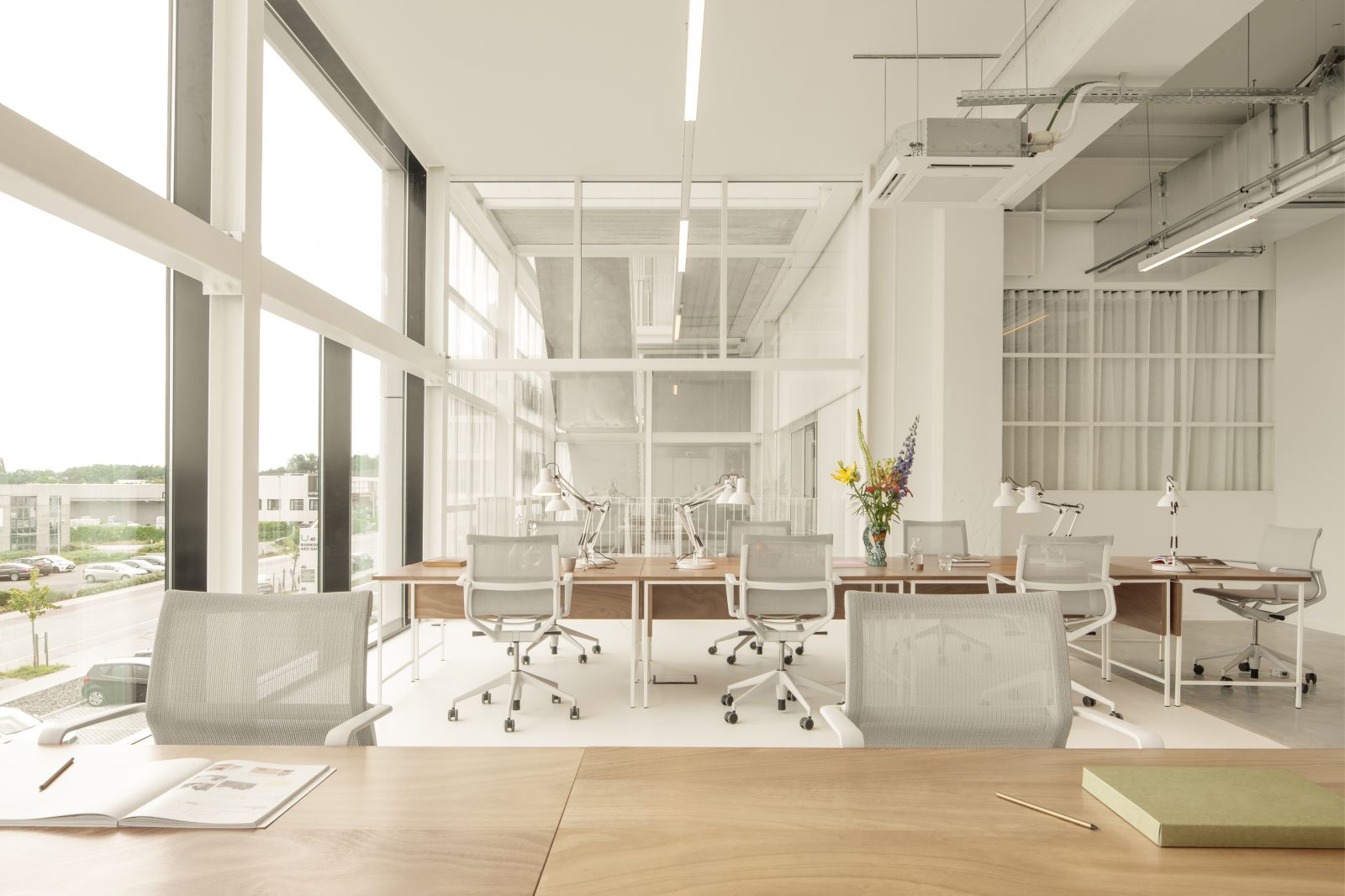
At Fosbury & Sons we welcome all types of businesses, small and big. That’s right, the demand for a different kind of workspace is not limited to freelancers or start-ups, also more and more bigger corporations are choosing for a coworking space. It may have started as a solution for the flexible needs of starting companies or the loneliness of freelancers, but today, also multinational corporations find their way to coworking spaces. Let’s take a closer look at the reasoning behind this.
International research points out that coworking spaces have a positive effect on the productivity and overall happiness of employees. Companies start to recognize that exposing their staff to new ideas and creative work environments creates more value for their business. In addition, the workspace quality is becoming more and more important for employees, in some cases it is even a decisive factor when choosing an employer.
Many larger companies now realise that, to compete in the digital age, they need to attract and retain skilled people who are unlikely to relish traditional office environments (JLL, p.2)

Another major draw of a coworking space is the feeling of belonging to a group and connecting with other people. Creating a sense of community is easier said than done, many traditional companies struggle with this. Here at Fosbury & Sons we aim to create a collaborative cosmos where people from different backgrounds come together. People meet in the open spaces, during member lunches or during one of our events. With our app ‘Fons Jr.’ we try to facilitate introductions between Fosbury members, even across different locations. The contact with others helps to spark new ideas and fosters the creativity of our members.
The vibe is so positive here, and there’s always someone you can ask something to. There’s a healthy dynamic here, a lot of interaction. You learn from other companies. (Isabel Claessens, member of Fosbury & Sons Antwerp)
Thirdly, an efficient cost management of the real estate portfolio is crucial for every company today. It is a misconception that working spaces are more expensive than traditional offices. Based on the European Occupancy Index 2017 (Colliers International) the price per person for a private office at Fosbury & Sons is only half of the price of a traditional office. ‘Invisible costs’ such as a front desk officer, post handling & printing are often forgotten but at Fosbury & Sons they are all included in the price.
Corporations also choose for coworking spaces to have maximum flexibility and adaptability. With rapid economic changes it is becoming extremely hard to forecast
long-term real estate needs, a coworking space gives you options and offers solutions. Many companies in Fosbury & Sons have already moved to a bigger office as they expand, or they offer memberships to temporary employees for example.
Convenience is also a decisive factor when opting for a coworking space. A company moves in and everything is taken care of for them: no need to fill the coffee machine and no more empty paper trays in the printer.
Finally, more and more enterprises are including coworking spaces in their business plans as an alternative for the home office. Creating local hubs is the perfect answer to mobility issues as more people will work from their home cities, which also contributes to employee satisfaction and productivity.
These are the main drivers for corporations to choose for a coworking space today and we are convinced that in the future coworking will become the new normal, also for bigger companies. We are ready to welcome them in our venues and to find the best office solutions adapted to their needs. Let’s continue to change the world of work.



Sources:
Business.com (2017). Coworking: 74% of coworkers are more productive. Via www.business.com/articles/coworking-74-of-coworkers-are-more-productive/
Colliers International (2018). European Occupancy Cost Index 2017. Via www.colliers.com
JLL EMEA Research (2019). JLL Flex Space EMEA Research: Disruption of Distraction. Via https://flexspace.jll.com/
Spreitzet, G. (2015). Why people thrive in coworking spaces. Via https://hbr.org/2015/05/why-people-thrive-in-coworking-spaces
Workero (2018). Trendrapport Workero. Via www.workero.com